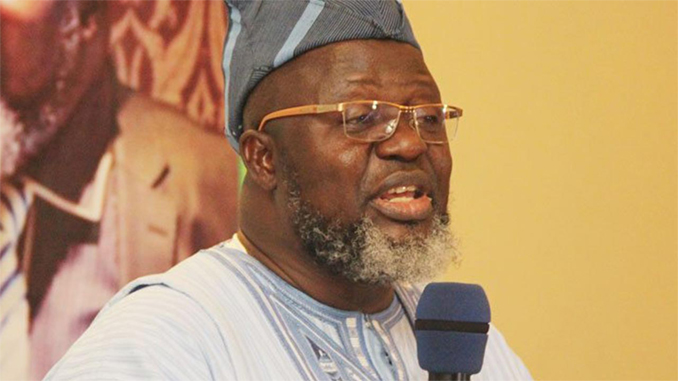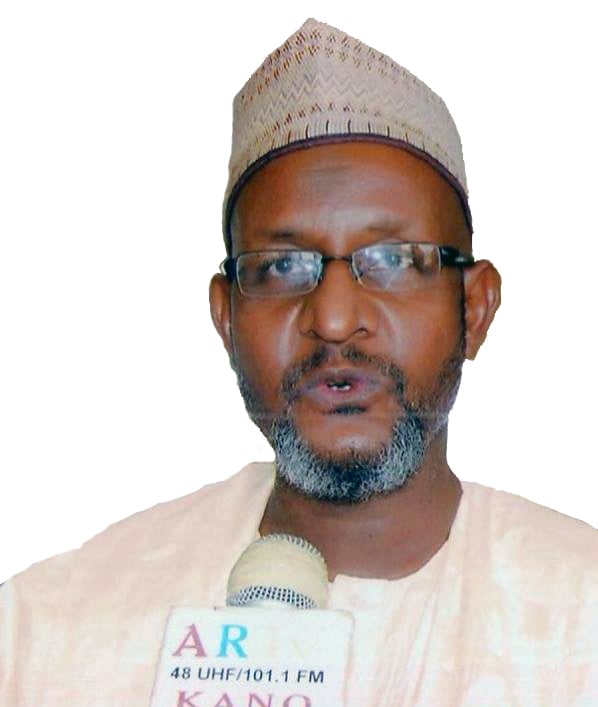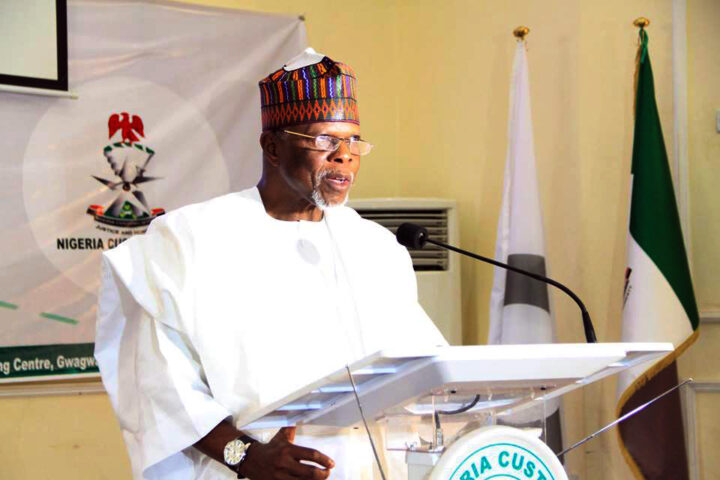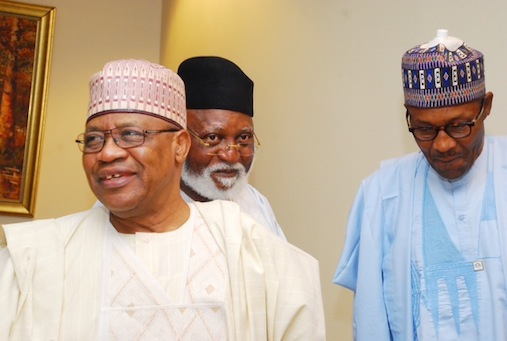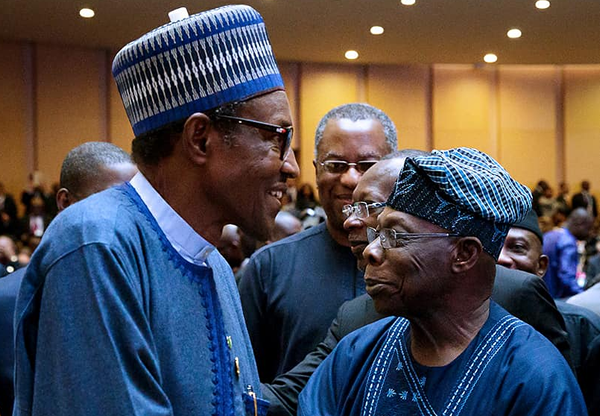In trying to diagnose the key causative factor for the stunted development of Nigeria, in spite of the huge deposit of human and material resources in it by the Great Architect of the Universe, many have put it squarely and firmly at the doorstep of leadership. Renowned writer, the late Chinua Achebe, published a pocket-sized book entitled “Trouble With Nigeria” on the matter-and not a few agreed with his postulations. I have, however, a slightly modified opinion now, even if I agreed with Prof. Achebe then, which digs a step deeper into the problem. In actual fact, my thesis explains why leadership has failed as woefully as it has especially the years of post-Civil War era.
As a student of human behavior, I read up a lot on B.F. Skinner’s Theory of Reinforcement, which states that “an individual’s behaviour is a function of its consequences”. The behaviorist, essentially, proposed reward and punishment as a way of sustaining good behavior and discouraging bad conduct respectively. Managing this dynamic is what Management experts and workplace Culture Specialist, Chris Edmonds refers to as Consequence Management-and I think that is the REAL problem with Nigeria. As a country, we have not imbibed the culture of rewarding good behavior and punishing bad ones and that is why not many good behaviors are repeated while bad behaviors are literally refreshed, remixed and redistributed!
Have you wondered why a reckless driver in Nigeria can relocate to the United States and doesn’t go to jail for bad driving with all the speed limits and law enforcement in the streets? It is neither luck nor smartness. It is because there are traffic laws in the United States and they are enforced. If you are not caught on the road while committing the offence, you could get captured by a traffic camera and a ticket posted to your house. You must answer the summons on the ticket and pay the fine or risk a bigger fine or jail term or both. That is a clear case of Consequence Management. And the traffic laws I have just described didn’t come about just like that. It is a result of a carefully planned and rigorously implemented process of human and traffic management.
To be able to drive in the United States (and I am using the US as an example because I have had a first-hand experience of their traffic management system), you MUST have a VALID Driver’s Licence. You start by applying online or at the Department of Public Transportation. Then, you take an online test and then a practical driving test based on which you will be issued a Licence if you are successful. I remember a friend who lives in the UK. Before she relocated, she used to be a “champion driver” and she always recounted her brushes with the Police and LASTMA (Lagos State Traffic Management Agency). She almost always escaped being penalized for either not having a valid driver’s Licence or reckless driving or incomplete or invalid vehicle documents and even insurance. In the UK, she failed the test over 6 times, paid so much in hiring various Trainers-and blaming everyone else but herself for failing the tests and forever reapplying and queuing forever for another test.
Advertisement
On the contrary, in Nigeria, most of the people you encounter on the road driving themselves and, sometimes driving passengers commercially, did not go through any process before they took to the wheels. Many of them do not have a valid driver’s Licence. Majority of those who have, actually have either expired or fake licenses. To make matters worse, it is easier for a pregnant camel to pass through the half-closed eye of a needle than to process a driver’s Licence through the official channels. It is that bad-and takes very long time to do, if you have sufficient patience to get involved in the tortuous process. So, how does one begin to talk about Consequence Management with regard to the traffic system in Nigeria?
As it is with traffic, so it is with many other things. A former Governor of Lagos State, who made a point of driving himself most of the time and without the usual blaring sirens once told the story of how the CEO of a bank pushed his convoy off the road as he was heading to the local airport in Lagos. Ironically, if you may, the CEO, who was incidentally headed the same direction jumped out of his tinted car to greet the Governor when he arrived a few minutes later, was thoroughly embarrassed when he was told by the Governor of the earlier “greeting” by his speeding convoy. How does one begin to explain this?
Away from traffic, this issue of applying reward and punishment, which I have elected to describe here as Consequence Management has become a major albatross impeding the emergence of a better and stronger Nigeria-and a more respected people! Known criminals have been known to have taken or rather been given traditional titles in various communities. People with shady backgrounds with sudden wealth from doubtful sources have been rewarded with not only titles but the accompanying front row in churches and at secular public event – even if they are known to be of dubious character.
Advertisement
In government, people who have performed badly on their jobs have been known to have been rewarded with even higher positions (not responsibilities) as if it is better to be bad. People who looted public funds have been given a slap on the wrist, if at all, and allowed to even move around with official security protection. Nigerian politics and government is thickly populated by many people whose capacity and integrity are clearly in doubt-and it looks like there is nothing anybody can do about it. In actual fact, a good man or good woman is less likely to make it in public service or so it seems. The big one for me is that people who went into public service poor, may be not poor but not rich, come out very wealthy even when their remunerations are public knowledge. Many of them, in and out of service, live in opulence and display rather nauseating insensitivity to the suffering of majority of the people who, in a manner of speaking, put them in office.
By the way, I once told someone that one of the fundamental tragedies of leadership in Nigeria is that military men, including OBJ and PMB, who disrupted democratic rule, were ironically rewarded with the topmost political position in the country. Unlike Israel, where the military is the manufacturing line for political leaders, Nigeria has had an embarrassing surfeit of ‘coupists’ in political positions. It has had very strong and deleterious consequences on the politics, leadership and government.
It was, therefore, a big relief when the current government led by President Muhammadu Buhari promised it would fight corruption and bring back discipline in public and private life. Considering Buhari’s antecedents, especially His highly cherished War Against Indiscipline (WAI) many were expectant that, perhaps, the concept of Consequence Management in that sense would be put into practice. Also, with the strident reference to the poor performance of the previous government is security, infrastructure development and economic management, everyone expected that the current government would make examples of non-performing government officials. Alas, on the contrary, people who have under-performed as well as those not performing at all have been kept on their jobs without as much as public excoriation much less removal to serve as deterrent to laggards.
Admittedly, this is not peculiar to the current government but it has become a trend. As we say in my village, when a bad behavior is allowed to fester for one year, it becomes custom and tradition. Nigeria has allowed bad behaviors to fester for too long, and now we have a culture of impunity. Unfortunately, not up to 25% of Nigerians are badly behaved. We are a good people by nature, but the bad apples are spoiling the whole bunch. Less than 2 million Advance Fee fraudsters have so tainted the image of Nigeria that people from other countries are hesitant to do business with us-or take extra time and care to do proper due diligence on us before they can get into bed with us, in a manner of speaking. It is not everyone who has been in public service that looted public funds, but the 5% or so who did have been quite dominant in showcasing their ill-gotten money.
Advertisement
I dare say every leader was once a follower, just like every headmaster was a student at some point. One can, therefore, say the followers who are currently complaining about the leaders will someday take over from them. What guarantees do we have that they will not slide into disrepute as soon as they get there? Remember the story of the “demons in the Villa”, which suggests that you only need to get into public service and you will acquire the bizarre tastes and uncommon quest for too much money to sustain a visible and opulent lifestyle for yourself, your family relatives and friends into the 3rd or even 4th generation!
How do we deal with this? First is to vote for people of proven record of high performance and integrity. There is no art to read the mind’s construction in the face, as Shakespeare rightly said, but we can at least help by avoiding people with known record of poor performance and integrity deficit. This will set the stage for expectation management and then Consequence Management. In this sense, when people fail to meet our expectations, we kick them out as punishment and re-elect and re-appoint people when they perform and behave to our expectations.
Secondly, people in leadership positions must become conversant with setting agenda, setting goals, measuring performance, rewarding good performance and punishing bad performance. For instance, if a Minister fails to deliver his targets, he should be redeployed or fired. He should not be allowed four years, one full term, before something drastic is done about him or her. That is a whole lifetime, my dear friends!
Thirdly, with knowledgeable people in public service, even an issue like the management of traffic will become a piece of cake, not Rocket Science. I always say the day we have knowledgeable, capable people in key departments in public service, real change will occur. We have seen some examples even in the worst of times. Dr. Akinwunmi Adesina stuck out like a “sore thumb” in the Ministry of Agriculture during President Goodluck Jonathan’s government. Peter Obi became a standard for performance for South East Governors during his time. Governor Ambode of Lagos State has raised the high standards left behind by his predecessor Babatunde Raji Fashola. A knowledge-based leadership will drive more growth and performance by purposively designing KPIs for government officials, setting targets and standards and measuring them at the end of the day, with the right rewards and punishments as the case may be.
Advertisement
Fourthly, and very crucially, we must begin to police our laws. Most of what we lament about today have been captured and taken care of in our laws but the challenge has been in enforcing the laws. In some cases, we have even replicated some of the existing laws in new ones in total ignorance of the existence of the old ones. There is nowhere in the world including the US and the UK, we so often refer to like they are beds of roses, but the key difference between our country and those is that they are focused on the 11th Commandment: Thou Shall NOT get caught! In any sane society, once you break the law you go in for it. That is what we must now be aiming at, and it is easier said than done. We have to make examples of people who have broken the law. It is demotivating for a parent to treat two children, one well-behaved and the other badly behaved. You might end up losing both. So, when, or example, someone is being accused of malfeasance or nonfeasance and he is being appointed or reappointed into public service, it undermines the integrity of the government or the leader under whose watch such a nonsense has been done. Enough said.
Just like we say nobody is born bad, because the Great Architect of the Universe will never create anything bad, no country is created bad. It is the sum total of the behaviors of the leaders and the people that create the perception the rest of the world have. So, when someone describes Nigeria as a shithole, he knows, I hope, that no country was created a shithole. Perhaps, it is safer, as one has come to learn, that every country is a shithole but the difference is in the depth of the hole and the intensity of the putrefaction.
Advertisement
Even Consequence Management says I must stop writing lest I lose my readers. So, I stop by asking all of us to consider reviewing and rewiring ourselves to understand that nothing good comes easy and that we must do the work of building ourselves and our country into respectable entities by applying the right kind of rewards and punishments in every situation we find ourselves. It is as simple as taking care of people who have served the country well in government, sports, military, name it-and have brought honor and glory to the country.
I remain proudly Nigerian.
Advertisement
Views expressed by contributors are strictly personal and not of TheCable.
Add a comment


